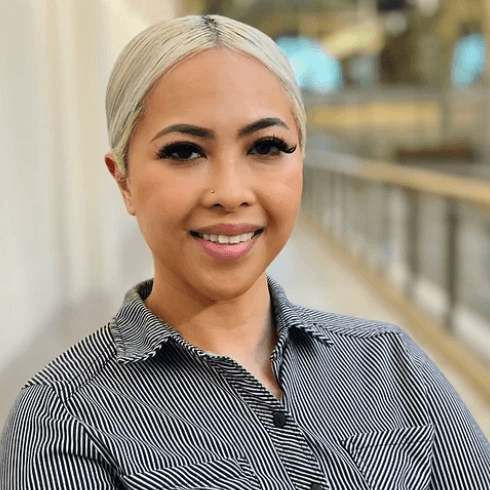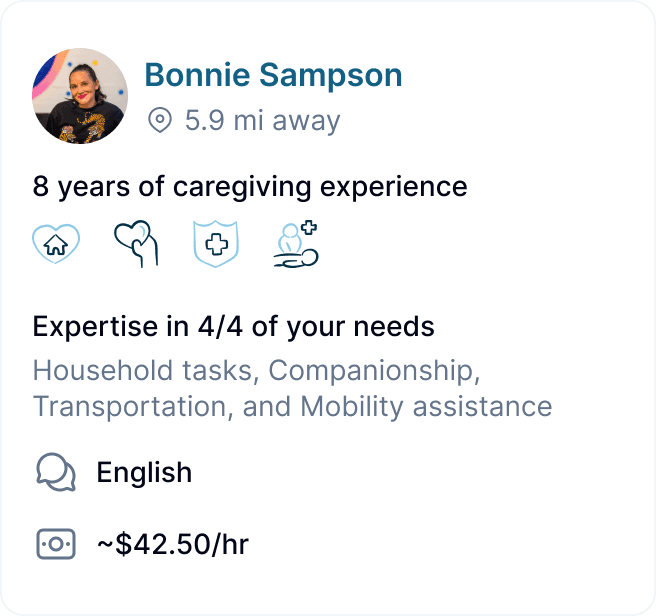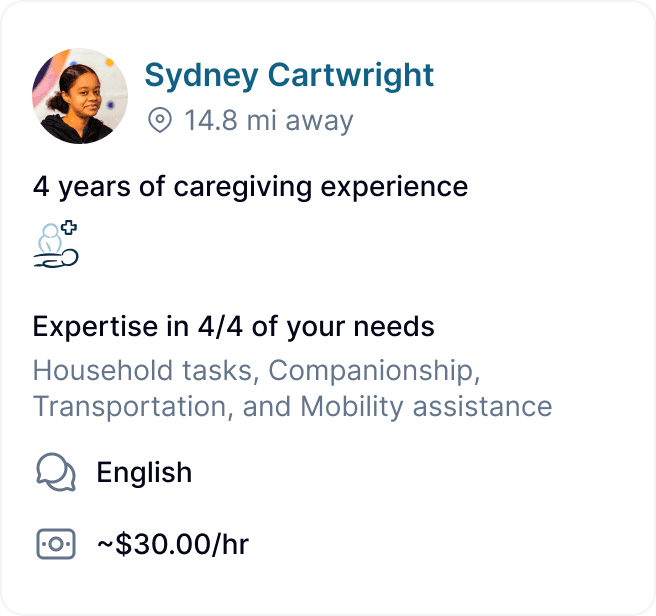What Is Personalized Home Care? Why It Matters for Your Aging Parent



As our parents age, ensuring their comfort, safety, and happiness becomes a top priority. Many families find themselves weighing the decision between moving a loved one into a facility or helping them age in place at home. Increasingly, personalized home care, delivered by a private caregiver, emerges as the preferred solution.
But what exactly is personalized home care, and why does it matter so much for your aging parent? Let’s explore the concept, its benefits, and how facilitators like Clara are changing the landscape of senior care to make personalized care easier to manage.
Understanding Personalized Home Care
Personalized home care refers to in-home support services that are tailored to the unique needs, routines, and preferences of an individual senior. Home care is typically delivered by a private caregiver—someone dedicated to your loved one’s care—who can assist with a range of daily activities, from bathing, dressing, and meal preparation to medication reminders, companionship, and transportation.
Given the one-to-one nature of the care delivered by a private caregiver, care can be highly adaptive to your parent’s lifestyle, health conditions, and personal wishes—allowing them to age in place with dignity and autonomy.
Why Personalized Home Care Matters
1. Preserving Independence and Dignity
Aging in place is deeply meaningful for many seniors. Staying at home allows your parent to maintain control over their daily routines, make personal choices, and enjoy familiar surroundings. This autonomy is closely linked to better mental health and a stronger sense of self-worth.
2. Emotional and Social Well-Being
Home is more than just a building—it’s a place filled with memories, relationships, and community ties. Personalized home care helps seniors maintain these emotional connections, reducing feelings of isolation that often come with moving to a facility. Family and friends can visit more freely, and seniors can continue participating in neighborhood activities and events.
3. Enhanced Comfort and Familiarity
Receiving care at home minimizes the stress and anxiety that can accompany a move to unfamiliar settings. Being surrounded by personal belongings and cherished memories boosts confidence and supports emotional well-being. Flexible scheduling allows care to fit seamlessly into your parent’s established routines.
4. Flexible, Responsive Support
Personalized home care is not static—it evolves as your parent’s needs change. Whether your loved one requires short-term help after surgery or ongoing assistance with chronic conditions, a private caregiver can adjust their approach and tasks, ensuring the right level of care at every stage.
5. Family Engagement
Home care encourages family involvement. Loved ones can easily participate in care decisions, track progress, and communicate preferences directly to the caregiver. This collaborative approach strengthens bonds and ensures care aligns with your parent’s values and wishes.
What Does a Private Caregiver Do?
A private caregiver is a trained professional who provides one-on-one support in the home. Their responsibilities are as varied as the people they serve, but typically include:
Personal care: Bathing, dressing, grooming, and hygiene
Meal planning and preparation
Light housekeeping and laundry
Medication reminders and management
Transportation for errands and appointments
Companionship and emotional support
Assistance with mobility and exercise routines
The beauty of personalized home care is that these services are not limited to a checklist. A private caregiver can help your parent re-engage with hobbies, maintain social connections, and even identify potential safety hazards in the home—making adjustments as needed to promote independence and well-being.
You can read more about the different responsibilities a private caregiver might perform here.
How To Get Started with Personalized Home Care
If you’re considering personalized home care for your aging parent, here are some steps to guide your journey:
1. Assess Needs
Talk with your parent and family about daily challenges, health conditions, and personal wishes.
2. Research Options
Learn about different types of home care to understand what’s available in your area. Think about whether you want to directly employ a caregiver—giving you greater control over who is caring for your aging parent—or whether you want to work with a home care agency.
3. Connect with a Facilitator
Based on your research, reach out to a (or multiple) trusted facilitator to discuss your needs and preferences.
4. Stay Involved
Regularly communicate with your parent and caregiver to ensure the care plan continues to meet evolving needs.
How Clara Can Help
Finding a reliable, compassionate private caregiver can be complicated and feel overwhelming. That’s where facilitators like Clara come in. Clara is a care marketplace, dedicated to connecting families with thoroughly vetted, qualified caregivers who provide high-quality, personalized home care.
Here’s what sets Clara apart:
Tailored Matching: Clara’s care experts help you find the right caregiver from a network of local professionals, ensuring the best fit for your parent’s personality and needs.
Streamlined Process: Clara handles all the paperwork, background checks, and insurance, making it easy for families to get started.
Increased Control: You choose the caregiver, set the schedule, and stay in charge of decisions—without taking on the administrative burden of being the legal employer.
Ongoing Support: Clara’s team remains available to help you navigate changing needs, adjust care plans, and answer questions every step of the way.
Cost Savings: By directly employing a caregiver through Clara’s care marketplace, families avoid agency fees and can save up to 40% on their care costs.
Conclusion: The Power of Personalized Home Care
Personalized home care is about honoring your parent’s unique preferences and needs. It’s a compassionate, flexible approach that prioritizes independence, emotional well-being, and family involvement. With the support of a dedicated private caregiver, your loved one can continue living life on their own terms—surrounded by the comforts of home.
If you’re ready to explore personalized home care for your aging parent, Clara is here to help. Our team makes it simple to find the right caregiver, set up care quickly, and adjust as your family’s needs evolve. To learn more or get started, contact Clara today—we’re committed to making aging in place a positive, empowering experience for your loved one and your family.
As our parents age, ensuring their comfort, safety, and happiness becomes a top priority. Many families find themselves weighing the decision between moving a loved one into a facility or helping them age in place at home. Increasingly, personalized home care, delivered by a private caregiver, emerges as the preferred solution.
But what exactly is personalized home care, and why does it matter so much for your aging parent? Let’s explore the concept, its benefits, and how facilitators like Clara are changing the landscape of senior care to make personalized care easier to manage.
Understanding Personalized Home Care
Personalized home care refers to in-home support services that are tailored to the unique needs, routines, and preferences of an individual senior. Home care is typically delivered by a private caregiver—someone dedicated to your loved one’s care—who can assist with a range of daily activities, from bathing, dressing, and meal preparation to medication reminders, companionship, and transportation.
Given the one-to-one nature of the care delivered by a private caregiver, care can be highly adaptive to your parent’s lifestyle, health conditions, and personal wishes—allowing them to age in place with dignity and autonomy.
Why Personalized Home Care Matters
1. Preserving Independence and Dignity
Aging in place is deeply meaningful for many seniors. Staying at home allows your parent to maintain control over their daily routines, make personal choices, and enjoy familiar surroundings. This autonomy is closely linked to better mental health and a stronger sense of self-worth.
2. Emotional and Social Well-Being
Home is more than just a building—it’s a place filled with memories, relationships, and community ties. Personalized home care helps seniors maintain these emotional connections, reducing feelings of isolation that often come with moving to a facility. Family and friends can visit more freely, and seniors can continue participating in neighborhood activities and events.
3. Enhanced Comfort and Familiarity
Receiving care at home minimizes the stress and anxiety that can accompany a move to unfamiliar settings. Being surrounded by personal belongings and cherished memories boosts confidence and supports emotional well-being. Flexible scheduling allows care to fit seamlessly into your parent’s established routines.
4. Flexible, Responsive Support
Personalized home care is not static—it evolves as your parent’s needs change. Whether your loved one requires short-term help after surgery or ongoing assistance with chronic conditions, a private caregiver can adjust their approach and tasks, ensuring the right level of care at every stage.
5. Family Engagement
Home care encourages family involvement. Loved ones can easily participate in care decisions, track progress, and communicate preferences directly to the caregiver. This collaborative approach strengthens bonds and ensures care aligns with your parent’s values and wishes.
What Does a Private Caregiver Do?
A private caregiver is a trained professional who provides one-on-one support in the home. Their responsibilities are as varied as the people they serve, but typically include:
Personal care: Bathing, dressing, grooming, and hygiene
Meal planning and preparation
Light housekeeping and laundry
Medication reminders and management
Transportation for errands and appointments
Companionship and emotional support
Assistance with mobility and exercise routines
The beauty of personalized home care is that these services are not limited to a checklist. A private caregiver can help your parent re-engage with hobbies, maintain social connections, and even identify potential safety hazards in the home—making adjustments as needed to promote independence and well-being.
You can read more about the different responsibilities a private caregiver might perform here.
How To Get Started with Personalized Home Care
If you’re considering personalized home care for your aging parent, here are some steps to guide your journey:
1. Assess Needs
Talk with your parent and family about daily challenges, health conditions, and personal wishes.
2. Research Options
Learn about different types of home care to understand what’s available in your area. Think about whether you want to directly employ a caregiver—giving you greater control over who is caring for your aging parent—or whether you want to work with a home care agency.
3. Connect with a Facilitator
Based on your research, reach out to a (or multiple) trusted facilitator to discuss your needs and preferences.
4. Stay Involved
Regularly communicate with your parent and caregiver to ensure the care plan continues to meet evolving needs.
How Clara Can Help
Finding a reliable, compassionate private caregiver can be complicated and feel overwhelming. That’s where facilitators like Clara come in. Clara is a care marketplace, dedicated to connecting families with thoroughly vetted, qualified caregivers who provide high-quality, personalized home care.
Here’s what sets Clara apart:
Tailored Matching: Clara’s care experts help you find the right caregiver from a network of local professionals, ensuring the best fit for your parent’s personality and needs.
Streamlined Process: Clara handles all the paperwork, background checks, and insurance, making it easy for families to get started.
Increased Control: You choose the caregiver, set the schedule, and stay in charge of decisions—without taking on the administrative burden of being the legal employer.
Ongoing Support: Clara’s team remains available to help you navigate changing needs, adjust care plans, and answer questions every step of the way.
Cost Savings: By directly employing a caregiver through Clara’s care marketplace, families avoid agency fees and can save up to 40% on their care costs.
Conclusion: The Power of Personalized Home Care
Personalized home care is about honoring your parent’s unique preferences and needs. It’s a compassionate, flexible approach that prioritizes independence, emotional well-being, and family involvement. With the support of a dedicated private caregiver, your loved one can continue living life on their own terms—surrounded by the comforts of home.
If you’re ready to explore personalized home care for your aging parent, Clara is here to help. Our team makes it simple to find the right caregiver, set up care quickly, and adjust as your family’s needs evolve. To learn more or get started, contact Clara today—we’re committed to making aging in place a positive, empowering experience for your loved one and your family.
As our parents age, ensuring their comfort, safety, and happiness becomes a top priority. Many families find themselves weighing the decision between moving a loved one into a facility or helping them age in place at home. Increasingly, personalized home care, delivered by a private caregiver, emerges as the preferred solution.
But what exactly is personalized home care, and why does it matter so much for your aging parent? Let’s explore the concept, its benefits, and how facilitators like Clara are changing the landscape of senior care to make personalized care easier to manage.
Understanding Personalized Home Care
Personalized home care refers to in-home support services that are tailored to the unique needs, routines, and preferences of an individual senior. Home care is typically delivered by a private caregiver—someone dedicated to your loved one’s care—who can assist with a range of daily activities, from bathing, dressing, and meal preparation to medication reminders, companionship, and transportation.
Given the one-to-one nature of the care delivered by a private caregiver, care can be highly adaptive to your parent’s lifestyle, health conditions, and personal wishes—allowing them to age in place with dignity and autonomy.
Why Personalized Home Care Matters
1. Preserving Independence and Dignity
Aging in place is deeply meaningful for many seniors. Staying at home allows your parent to maintain control over their daily routines, make personal choices, and enjoy familiar surroundings. This autonomy is closely linked to better mental health and a stronger sense of self-worth.
2. Emotional and Social Well-Being
Home is more than just a building—it’s a place filled with memories, relationships, and community ties. Personalized home care helps seniors maintain these emotional connections, reducing feelings of isolation that often come with moving to a facility. Family and friends can visit more freely, and seniors can continue participating in neighborhood activities and events.
3. Enhanced Comfort and Familiarity
Receiving care at home minimizes the stress and anxiety that can accompany a move to unfamiliar settings. Being surrounded by personal belongings and cherished memories boosts confidence and supports emotional well-being. Flexible scheduling allows care to fit seamlessly into your parent’s established routines.
4. Flexible, Responsive Support
Personalized home care is not static—it evolves as your parent’s needs change. Whether your loved one requires short-term help after surgery or ongoing assistance with chronic conditions, a private caregiver can adjust their approach and tasks, ensuring the right level of care at every stage.
5. Family Engagement
Home care encourages family involvement. Loved ones can easily participate in care decisions, track progress, and communicate preferences directly to the caregiver. This collaborative approach strengthens bonds and ensures care aligns with your parent’s values and wishes.
What Does a Private Caregiver Do?
A private caregiver is a trained professional who provides one-on-one support in the home. Their responsibilities are as varied as the people they serve, but typically include:
Personal care: Bathing, dressing, grooming, and hygiene
Meal planning and preparation
Light housekeeping and laundry
Medication reminders and management
Transportation for errands and appointments
Companionship and emotional support
Assistance with mobility and exercise routines
The beauty of personalized home care is that these services are not limited to a checklist. A private caregiver can help your parent re-engage with hobbies, maintain social connections, and even identify potential safety hazards in the home—making adjustments as needed to promote independence and well-being.
You can read more about the different responsibilities a private caregiver might perform here.
How To Get Started with Personalized Home Care
If you’re considering personalized home care for your aging parent, here are some steps to guide your journey:
1. Assess Needs
Talk with your parent and family about daily challenges, health conditions, and personal wishes.
2. Research Options
Learn about different types of home care to understand what’s available in your area. Think about whether you want to directly employ a caregiver—giving you greater control over who is caring for your aging parent—or whether you want to work with a home care agency.
3. Connect with a Facilitator
Based on your research, reach out to a (or multiple) trusted facilitator to discuss your needs and preferences.
4. Stay Involved
Regularly communicate with your parent and caregiver to ensure the care plan continues to meet evolving needs.
How Clara Can Help
Finding a reliable, compassionate private caregiver can be complicated and feel overwhelming. That’s where facilitators like Clara come in. Clara is a care marketplace, dedicated to connecting families with thoroughly vetted, qualified caregivers who provide high-quality, personalized home care.
Here’s what sets Clara apart:
Tailored Matching: Clara’s care experts help you find the right caregiver from a network of local professionals, ensuring the best fit for your parent’s personality and needs.
Streamlined Process: Clara handles all the paperwork, background checks, and insurance, making it easy for families to get started.
Increased Control: You choose the caregiver, set the schedule, and stay in charge of decisions—without taking on the administrative burden of being the legal employer.
Ongoing Support: Clara’s team remains available to help you navigate changing needs, adjust care plans, and answer questions every step of the way.
Cost Savings: By directly employing a caregiver through Clara’s care marketplace, families avoid agency fees and can save up to 40% on their care costs.
Conclusion: The Power of Personalized Home Care
Personalized home care is about honoring your parent’s unique preferences and needs. It’s a compassionate, flexible approach that prioritizes independence, emotional well-being, and family involvement. With the support of a dedicated private caregiver, your loved one can continue living life on their own terms—surrounded by the comforts of home.
If you’re ready to explore personalized home care for your aging parent, Clara is here to help. Our team makes it simple to find the right caregiver, set up care quickly, and adjust as your family’s needs evolve. To learn more or get started, contact Clara today—we’re committed to making aging in place a positive, empowering experience for your loved one and your family.
More about caregiving
More about caregiving


What to Do If Your Parent Refuses Help



Clara Editorial Team


What If I Only Need Home Care for a Few Hours a Week?



Clara Editorial Team


What Is A Companion Caregiver?



Vanessa Bustos


A Beginner's Guide To Senior Care Terminology



Jon Levinson


What Is The Difference Between Home Care And Home Health?



Lowrie Hilladakis


How a Caregiver Supports Post-Hospital Care



Jon Levinson


What is a Senior Care Plan?



Jon Levinson


What Does a Live-In Caregiver Do?



Lowrie Hilladakis


International Women’s Day: Gender Equality in Caregiving



Lowrie Hilladakis


What Does a Senior Caregiver Do? Duties, Activities, and a Sample Day In The Life



Lowrie Hilladakis
GEt started for free
Better care starts with Clara.
Find, hire, and pay top-notch caregivers without the headache for a price that fits your budget.



GEt started for free
Better care starts with Clara.
Find, hire, and pay top-notch caregivers without the headache for a price that fits your budget.



GEt started for free
Better care starts with Clara.
Find, hire, and pay top-notch caregivers without the headache for a price that fits your budget.

